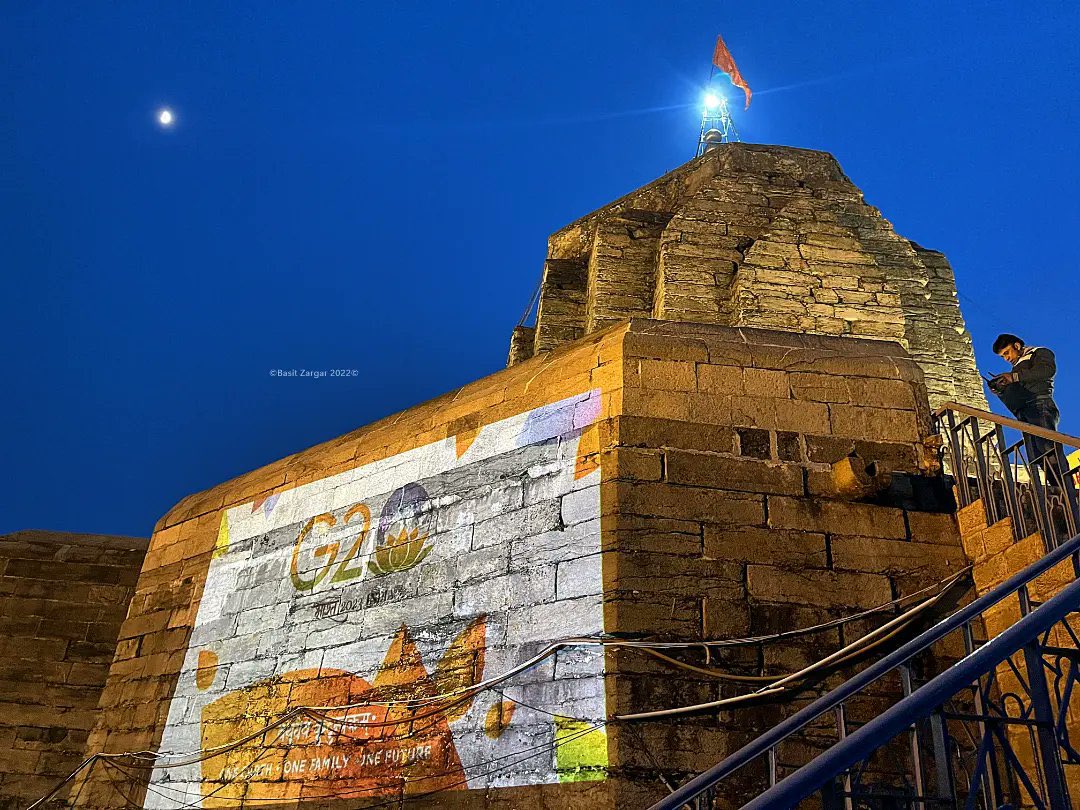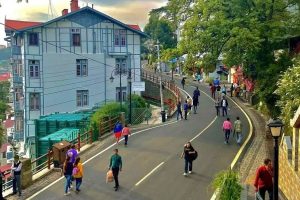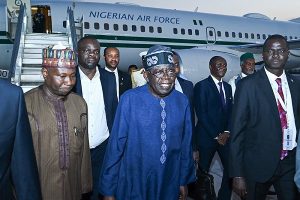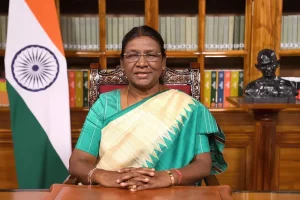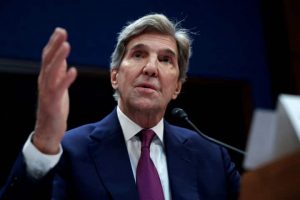The University of Kashmir at Hazratbal in Srinagar has been listed among 15 premier institutions of the country that will be representing the nation and hosting Youth-20 (Y-20) events during India’s Presidency of the Group-20 in the current year.
The University of Kashmir is joining the ‘Initiating Workshop for Y-20 Events’ being held at the Indian Institute of Management Raipur on January 28, 2023.
With India assuming the Presidency of the G-20 Group of Countries, the Kashmir University will be among 15 premier academic institutions in the country to represent the Nation in hosting the prestigious Youth20 events.
J&K LG, Manoj Sinha, who is the Chancellor of JK Universities pic.twitter.com/3KQmrDezUQ— Voice for Peace and Justice (NGO) (@farooqganderbal) January 24, 2023
Ahead of India’s taking over the chair last year, Pakistan had launched a diplomatic campaign in a failed attempt to block any G-20 event in Jammu and Kashmir which Islamabad treats as ‘disputed territory’ and New Delhi as an integral part of India. According to senior officials associated with the G-20 event management, at least two events, one each in Srinagar and Jammu, have been cleared for Jammu and Kashmir, even as the UT’s institutions are scheduled to participate in several events across the country.
The KU’s Vice-Chancellor, Prof. Nilofer Khan said it is an honour for the University of Kashmir to become a part of the Y-20 events being held under the aegis of the Union Ministry of Youth Affairs and Sports. She said academic institutions have been rightly chosen to realise the attainment of 17 Sustainable Development Goals (SDGs) adopted by the G-20 countries.
According to the VC, the University has already geared up to host the proposed seminar in Srinagar. A high-level committee has been constituted in the University for making necessary preparations and arrangements related to the Y-20 event. “We will be regularly holding discussions in this regard with all relevant stakeholders so that we are able to fulfil our mandate with all determination and success,” she said, urging the varsity’s faculty to contribute in advancing the G-20 agenda among the students and research scholars so that the same is disseminated through community engagement at grassroots
The Y-20 events are being held in line with Prime Minister Narendra Modi’s vision that calls upon the country to present its experiences, learning and models as the possible templates for others, particularly the developing world, during India’s G-20 Presidency.
Manoj Sinha, the Lieutenant Governor of the Union Territory of Jammu and Kashmir, who is also the Chancellor of the State-run Universities, has called for an active participation of educational institutions in the G-20 meetings. He has asked the universities to conduct seminars and discussions on the G-20 conference.
LG Manoj Sinha called upon #Youth Clubs, #women #Entrepreneurs, #Tourism Entrepreneurs, Innovators to come together to showcase Vibrant & #progressive #JammuAndKashmir during India's G-20 Presidency.#Kashmir #development #JammuKashmir pic.twitter.com/Ih37rBqY9X
— Ulfat 🍁🍁🍁🍁💐🦜 (@UlfatMria365) December 19, 2022
Youth-20 is a G-20 engagement group constituted in run up to the Y-20 Summit to be held at Varanasi in June 2023 and the Union Ministry of Youth Affairs and Sports has decided to hold various seminars in other universities across the country to disseminate the country’s G-20 agenda to the wider public at grassroots.
The Ministry has signed a Memorandum of Understanding (MoU) with the University of Kashmir for organising pre-Summit events as a prelude to the main Y-20 Summit. Delegates from G-20 countries will be participating in the Y-20 event in the University, which is shortly writing to other sister universities in the UT seeking their participation.
The proposed Y-20 aims to increase the understanding of youth in the thematic area as also to provide a forum for healthy discussions and dissemination of India’s G-20 agenda.
The broader themes for the Y-20 Summit, among others, include Industry 4.0, Innovation and 21st Century Skills; Start-up India Policy; National Education Policy-2020; India’s Digital Revolution; Climate Change and Disaster Risk Reduction; National Action Plan on Climate Change; Peace Building and Reconciliation; Youth in Democracy and Governance, besides Health, Wellbeing and Sports.
After dismissal of the PDP-BJP Government in June 2018, and more remarkably after abrogation of Article 370 and reorganisation of the erstwhile State into the two separate UTs of J&K and Ladakh, the University of Kashmir has, to a great extent, restored its academic ambience. The University and its affiliate colleges and institutions have secured prestigious accreditations in the last four years as the once routine separatist demonstrations have ended completely.
A NSS volunteer from Kashmir University shines in the ongoing NYF held at Hubli, Karnataka. The student received the day's finest question award at the youth summit. Director NYKS DR. Bhuwanesh Jain felicated the student and congratulated J&K for winning the award.@NssrdD pic.twitter.com/wIodEPjxlr
— NSS, University Of Kashmir (@nsskashmir) January 16, 2023
After the outbreak of the armed insurgency, followed by the kidnapping and assassination of the then VC Prof. Mushirul Haq and his personal secretary Abdul Gani Zargar, in April 1990, the University was virtually taken over by the militants. Even the VCs and other senior officers were forced to lead demonstrations for J&K’s separation and azaadi for years. Hundreds of administrative and faculty appointments, allegedly on gun point, took place in the first 10-20 years of militancy at the University of Kashmir.
Even as some sections of faculty restricted themselves to their duties, a number of officers and teachers literally turned the University of Kashmir into a ‘madrasa for azaadi’. While two Professors, including a female professor from Lucknow, were gunned down inside the campus, years later senior separatist leader Syed Ali Shah Geelani was seen leading the radicalised student groups and making inspections of the Iqbal Library.
#SIA attached property of separatist leader Syed Ali Shah Geelani (now dead) in Barzulla Srinagar. #TYPNews pic.twitter.com/Mggk9I22PM
— Jammu Kashmir News Network 🇮🇳 (@TheYouthPlus) December 20, 2022
For several years, delegations of the University professors were made to receive foreign diplomatic delegations in Srinagar and plead for the cause of azaadi.
Rising for the national anthem was considered as ‘treason’. Hurriyat Chairman Mirwaiz Umar Farooq, who later did a Ph D with the University of Kashmir, refused to accept his degree from the Convocation chief guest and Vice President of India. Ironically, almost all the faculty members, who spearheaded and promoted the campaigns for azaadi, were, upon or close to their retirement, granted post-retirement rehabilitation of 2 to 5 years at the Central University Kashmir (CUK) controlled by the Union Ministry of Human Resources Development.






